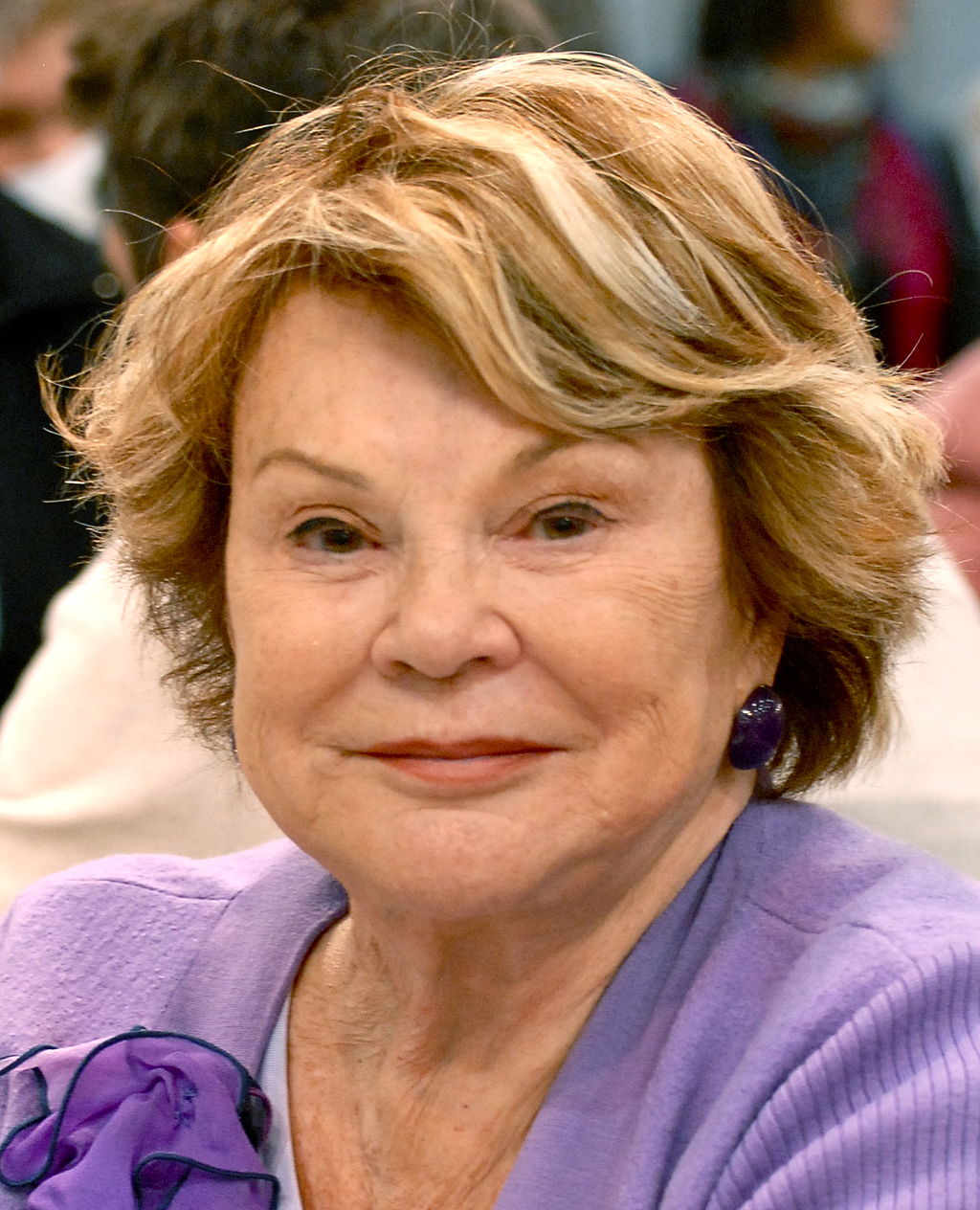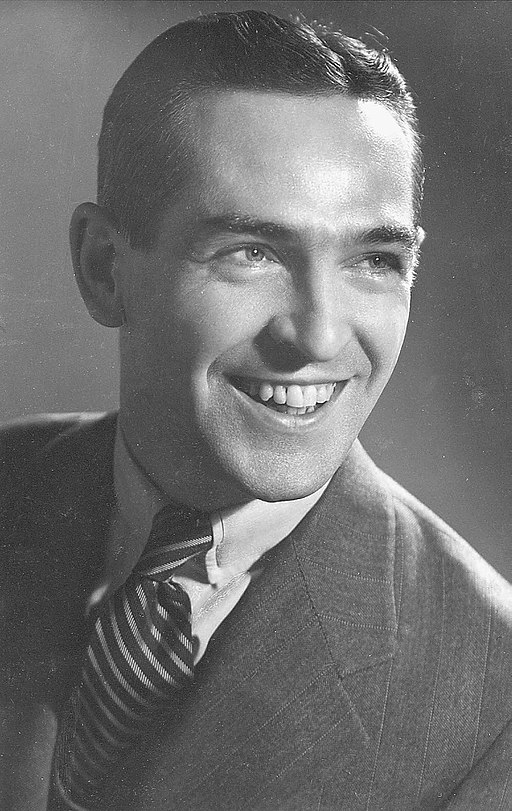Janette Bertrand, CC, CQ, journalist, actor, author, playwright, feminist (born 25 March 1925 in Montreal, Quebec). A leading figure in Quebec television, Janette Bertrand has left a profound mark on journalism and culture in Quebec. She is renowned for her frank, sincere approach to social issues that had never before been addressed on Quebec television, such as sexual relationships, homosexuality, AIDS, suicide, and violence against women. She has long been recognized for her progressive stances on social issues and her role in educating the public about them. She is a Companion of the Order of Canada and a Chevalier of the Ordre national du Québec.

Janette Bertrand at the Salon international du livre de Québec, 2010
"File:Janette Bertrand 2010.jpg" by Asclepias is licensed under CC BY-SA 3.0
Childhood and Early Career
Janette Bertrand grew up in Montreal in a working-class neighbourhood, where her parents owned a men’s clothing store. She was the youngest of four children, and the only girl. Through sheer determination, she convinced her parents to let her continue her education after high school. She enrolled in the arts program at the Université de Montréal, where she studied history with the prominent historian and Québec nationalist Father Lionel Groulx.
Bertrand began her career in journalism at the newspaper Le Petit Journal. She wrote a column called Opinions de femmes. It offered a humorous perspective on men’s attitudes in society at that time. She began writing the paper’s advice column, Le refuge sentimental, in 1950. She continued to write it for the next 17 years. It was the inspiration for the song “Madame Bertrand” (Dear Madame Bertrand), recorded by Robert Charlebois and Mouffe (Claudine Monfette) in 1969.
Radio Host, Screenwriter and Actor
In the early 1950s, Bertrand joined Radio-Canada as host of the radio show Déjeuner en musique. She then moved on to radio station CKAC. She and her husband, actor Jean Lajeunesse, hosted the show Jean et Janette. Their next show, Mon mari et nous, marked a first for French-language radio in Canada. Recorded in their kitchen and dining room, and interrupted by their children coming home from school for lunch, the program brought thousands of delighted listeners into the heart of the couple’s everyday lives.
Around the same time, Bertrand began her television career. She wrote and acted for three different broadcasters: Radio-Canada, Télé-Métropole and Radio-Québec (now Télé-Québec). A leading figure in Quebec television, she took an innovative approach to writing for television dramas and serials. (See also French-Language Television Drama.) Her simple, direct style struck a chord with viewers, who saw themselves in these shows about love, marriage and family issues. Bertrand was never at a loss for inspiration. She drew on her own experience and the hundreds of letters she received through her advice column. The series Grand-papa, Toi et moi and Quelle famille! (the last of which featured Bertrand, Lajeunesse, their children and their dog) painted touching portraits of family life at that time.
Shattering Taboos
As time went by, Bertrand began writing poignant dramas. They shattered taboos and fearlessly broached ideas considered daring at the time. She touched on topics never before addressed on Quebec television, such as sexual relationships; AIDS; suicide; gambling; violence against women; incest; loneliness and aging. She was the first Quebec journalist to discuss homosexuality openly on television. (See also Lesbian, Gay, Bisexual and Transgender Rights in Canada). For many years, two of her programs — the 52-episode dramatic series Avec un grand A (1986–96) and the talk show Parler pour parler — were among the most watched on Quebec television. They painted a realistic portrait of Quebec society and how it was changing, including the status of women and women’s liberation. They also helped launch the careers of many Quebec actors. Bertrand won numerous Prix Gémeaux for the two programs, including Best Writing for a Dramatic Series and Best Program Host.
In theatre, Janette Bertrand made her mark with two important plays: Moi Tarzan, toi Jane and Dis-moi le si j’dérange. These works had a definite impact, not only because of their subjects (sexism and the loneliness of old age), but also because of the intensity of the actors’ performances and the emotions that they portrayed. Bertrand began teaching playwriting at Montreal’s Institut national de l’image et du son (INIS) in 1996.
Author
Over the years, Janette Bertrand has published a variety of books; from the cookbook Les Recettes de Janette (first published in 1968 and reprinted in 2005) to the novel Avec un grand A (1990) to her autobiography Ma vie en trois actes (2004). Her novel Le Bien des miens came out in 2007, followed by Le Cocon in 2009. In 2012, 2013 and 2014, she published a triptych of novels entitled Lit double that deals with the lives of several generations of couples.
Public Figure
Janette Bertrand has long been recognized for her progressive stances on social issues and her role in educating the public about them. She has left a profound mark on television and other media in Quebec. In keeping with her social commitment, she has served as honorary president of fundraising campaigns for numerous community and service projects.
In 2013, Bertrand wrote a letter in support of the Quebec Values Charter proposed by the PQ government of Pauline Marois. The letter was co-signed by 20 other women, including Djemila Benhabib, Denise Filiatrault, Chantal Renaud, Denise Robert and Julie Snyder. They called themselves the “Janettes” — a reference to the “Yvettes” affair that turned the tide of the 1980 Québec Referendum. Some of Bertrand’s subsequent statements concerning the Values Charter were roundly criticized in the media; but the letter nevertheless launched the public debate on this subject and focused it on the issue of equality between men and women.
In 2014, a three-part documentary based on Bertrand’s autobiography Ma vie en trois actes aired on the biography series Les grands reportages – Personnalités on Radio-Canada news channel Ici RDI. The episode was nominated for a 2015 Prix Gémeaux for Best Documentary Program or Series (Biography or Portrait). Bertrand plans to follow up her three-act autobiography with a fourth installment.
Honours and Awards
- Miss Radio-Télévision, Gala Artis (1964)
- Woman of the Century, Salon de la femme, Montréal (1990)
- Silver Medal, Mouvement national des Québécois (1991)
- Chevalier, Ordre national du Québec (1992)
- Award for Lifetime Artistic Achievement (Broadcasting), Governor General's Performing Arts Awards (2000)
- Tribute, Cinémathèque québécoise (2001)
- Officer, Order of Canada (2002)
- Chevalier, Ordre de La Pléiade (2002)
- Fight Against Homophobia Award (since 2014, the Laurent McCutcheon Award), Fondation Émergence (2003)
- Condorcet Dessaulles Award, Mouvement laïque québécois (2003)
- Tribute, Femmes du cinéma, de la télévision et des médias numériques (2005)
- Prix Gémeaux (2005)
- Readers’ Choice Award for her autobiography Ma vie en trois actes, Salon du livre de Montréal ‒ La Presse (2005)
- Doctor of Letters honoris causa, Université Laval (2006‒07)
- Guy Mauffette Award for Radio and Television, Prix du Québec (2011)
- Companion, Order of Canada (2020)

 Share on Facebook
Share on Facebook Share on X
Share on X Share by Email
Share by Email Share on Google Classroom
Share on Google Classroom



